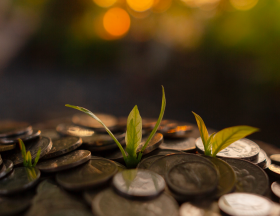Faced with the coronavirus crisis, African countries have put in place various measures in order to respond effectively to the threat of the pandemic. In 2020, sub-Saharan Africa is estimated to have experienced an economic contraction of around 2%.
Sub-Saharan Africa is expected to experience economic growth of between 2.3% and 3.4% this year. This is what the World Bank announced on March 31, 2021.
According to the institution, the region’s economic recovery should take place despite the general recession estimated at 2%, recorded in 2020. It is due to the effects of covid-19 on different sectors of activity. Faced with the spread of the virus, countries have indeed been forced to take restrictive measures; which slowed down the activity of different sectors, but also trade and consumption.
The World Bank indicates in its report entitled “The Future of Work in Africa: Emerging Trends in Digital Technology Adoption” that the economic recovery in sub-Saharan Africa will be driven by economic factors, but also health. We can cite the resumption of activities in the agricultural sector, and the efforts put in place by governments to control the spread of the coronavirus.
According to Albert G. Zeufack, World Bank Chief Economist for Africa, “African countries have made huge investments over the past year to keep their economies afloat and protect lives and livelihoods. of their populations ”.
However, it should be noted that the recovery expected by the World Bank will not be the same in all the countries of the region.
Indeed, if Kenya, Ivory Coast, Botswana and Guinea for example are expected to experience a strong recovery, other countries on the other hand will have weaker growth. This is because the former countries will benefit from the expected rebound in private consumption and investment.
Specifically, the institution indicates that the economic growth of East and Southern Africa is expected to 2.6% in 2021, and 4.0% in 2022, after an overall recession of 3% in 2020, mainly due to to South Africa and Angola. For the West and Central Africa sub-region, the Bank forecasts growth of 2.1% in 2021 and 3.0% in 2022, after a recession of 1.1%.
For an optimal recovery of the economy, the institution says it is important to put in place “ambitious reforms that support job creation, strengthen equitable growth, protect vulnerable people and contribute to environmental sustainability. They will be essential to sustain efforts towards a stronger recovery across the African continent in the future “. This also implies policies to improve productivity and a search for competitiveness in economic sectors.
In this sense, the countries of sub-Saharan Africa could focus on digital inclusion in working methods, but also exploit “the African continental free trade area in order to deepen the integration of African countries in the chains. of regional and global value ”.
Source Ecofin Agency
































Réagissez à cet article